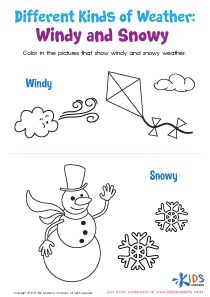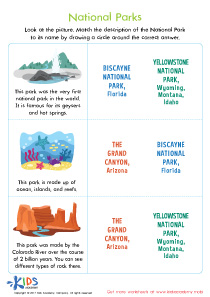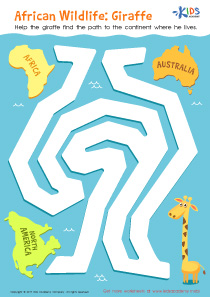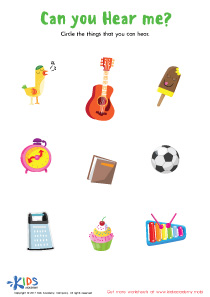Engaging First Grade Life Science Worksheets: Explore the World Around Us with Fun Activities
2 filtered results
-
From - To
Learning Normal Difficulty Life Science Worksheets for Grade 1
Discover the wonders of Life Science with our engaging and educational worksheets designed specifically for Grade 1 students. Our Normal Difficulty Life Science worksheets are filled with colorful illustrations and fun activities that will introduce kids to the basics of how living things interact with their environment. From identifying animal groups to exploring plant life cycles, our worksheets cover a wide range of topics to get kids excited about the world around them. Perfect for both classroom and at-home learning, our Life Science worksheets are the ideal resource to enhance your child’s understanding of the natural world.


Herbivores Printable


Carnivores Worksheet
The Importance of Early Life Science Education: Worksheets for Grade 1
Life Science Worksheets for Grade 1: The Importance of Teaching Early
Life science worksheets are essential for young learners, as they help children develop a curiosity and understanding of the world that surrounds them. Grade 1 students are at an age where their minds are eager to learn and explore the unknown. With the help of life science activities, they can begin to learn about the environment and living organisms.
Why Teach Life Science to Grade 1 Students?
Grade 1 students are the perfect audience to introduce life science concepts to because they are at a stage where they are naturally inquisitive and curious about the world around them. Life science worksheets are designed to be interactive, easy to understand, and fun. These activities cover different topics such as plants, animals, states of matter, and the environment.
Because life science studies help children learn about the world and their role in it, they can become enthusiastic learners, which will result in a lifelong learning experience. By exposing young learners to essential principles of life science, educators can set children up for success later in life.
Benefits of Using Life Science Worksheets
Life science worksheets offer a lot of advantages for both educators and students. Here are some benefits:
Engage Students: Life science worksheets are designed to capture the attention of young learners. By including fun images, captivating stories, fascinating facts, and interactive questions, life science worksheets can keep students motivated and engaged.
Develop Conceptual Understanding: Worksheets help students understand essential concepts of life science. They will see how the living and non-living interact to create and sustain the Earth's environment.
Builds Vocabulary: Life science worksheets introduce children to new words and concepts. As children learn new vocabulary, they will become more confident in using technical terms in their discussions and writing.
Cultivates Visual-spatial Skills: Life science activities can be visual, making them perfect for establishing visual-spatial skills. Learning to visualize objects and develop spatial reasoning can help children with tasks such as reading, problem-solving, and even sports.
Encourages Critical Thinking: Worksheets promote critical thinking skills by encouraging students to analyze, evaluate, and reflect on what they have learned. These tasks help young learners develop necessary skills and prepare them for later years in school.
Supports Cross-curricular Learning: Life science activities can be embedded in cross-curricular lessons, including STEM, social studies, and language arts. Life science concepts can be taught with music, art, math, among other subjects.

 Assign to the classroom
Assign to the classroom







